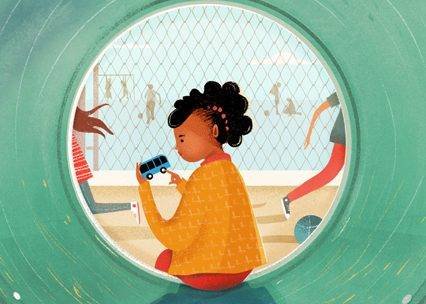Autism
Autism
Autism is a brain developmental disorder that is characterized by impaired verbal & nonverbal communication, social interaction, and repetitive behavior. Usually, parents notice signs in their child during the first two years of life. These signs develop gradually, while some children with autism reach their developmental milestones at a normal speed and then revert. If symptoms appear before age 3 then they are diagnosed with autism. Research shows that autism is 4 to 5 times more common among boys than girls and 1 out of 42 boys & 1 in 189 girls are diagnosed with autism in the US.


Repetitive Behavior
Children with Autism engage in recurring movements or strange behaviors such as head rolling, hand flapping and body rocking. They may be preoccupied with parts of objects like the wheels on a toy truck, with a single television program, toy, or game. Insist that the furniture not be moved. It can injure themselves or the person e.g. skin picking eye-poking, headbanging and hand biting. They may also become obsessively interested in a particular topic such as animals, memorizing train schedules, or airplanes. children may get angry or have emotional outbursts, especially when placed in a new environment. Some like to fix the same routine and little changes may trigger tantrums. Some children may wave their hands or twist or flick their fingers when they are excited or upset.
Autistic people hear, see and feel the world in a different way from other people. If you are autistic then you are autistic for life. It is not an illness and it cannot be cured. Some autistic people have learning disabilities and they need different levels of support. Autistic people may also experience over or under-sensitivity to touch, sound, taste, smell, light or colors. For many children, with behavioral treatment symptoms improve with age. People with Autism usually continue to need support and service as they get older, but depending on the severity of the disorder. Behavioral interventions and therapies are designed to remedy specific symptoms and it can to a large extent to improve those symptoms. There is no cure for Autism but language and speech therapy, occupational therapy, and educational support are available to help children and parents. Behavioral interventions or early speech can help children with autism gain self-care, communication, and social skills.
